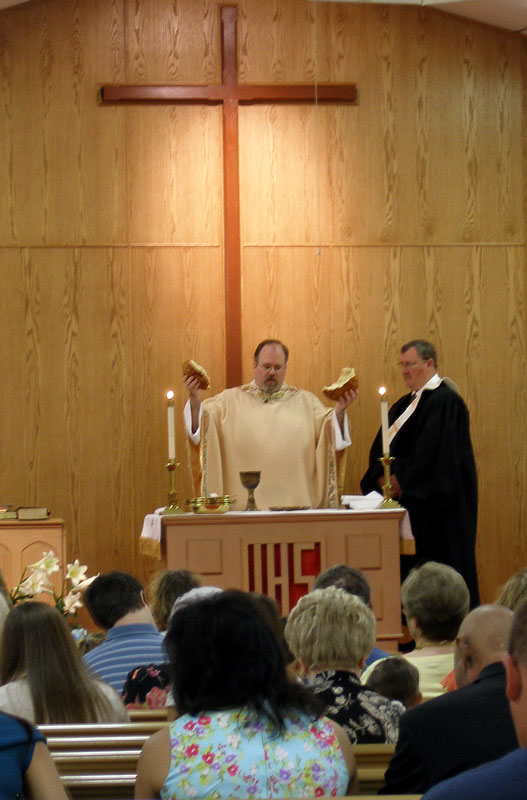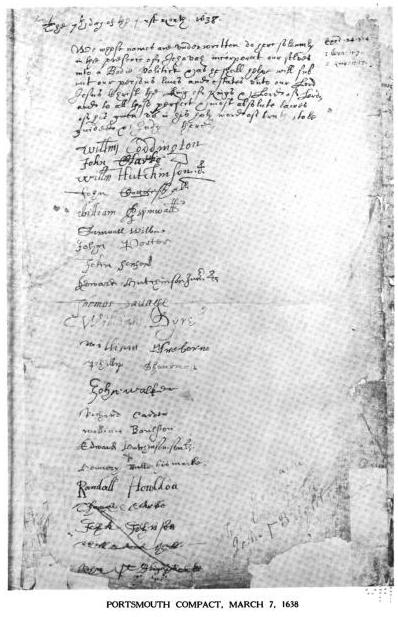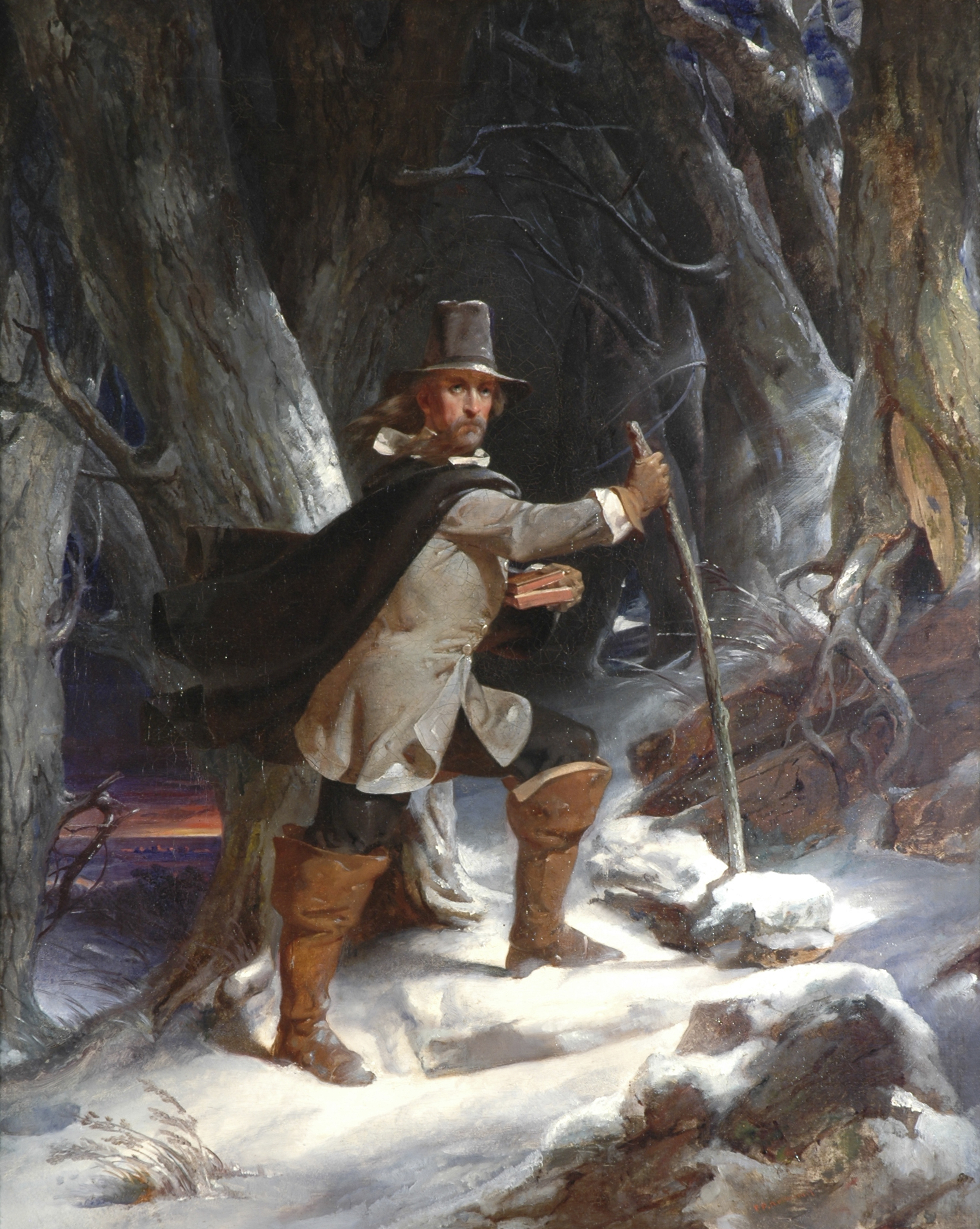|
American Baptists
The American Baptist Churches USA (ABCUSA) is a mainline Protestant and Baptist Christian denomination. It is a reorganization from 1907 of the Triennial Convention. The Triennial Convention was renamed as the Northern Baptist Convention in 1907, and renamed again as the American Baptist Convention from 1950 to 1972. Tracing its history to the First Baptist Church in America (1638) and the Baptist Associations which organized the Triennial Convention in 1814, the ABCUSA is headquartered in Valley Forge, Pennsylvania. Although the denomination is often considered mainline, varying theological and missional emphases may be found among its congregations, including modernist, charismatic and conservative evangelical orientations. In 2025, Pew Research Center published the ''Religious Landscape Survey'', estimating that 1 percent of US adults, or 2.6 million people, self-identify as adherents of the American Baptist Churches USA. History Colonial New England Baptists American ... [...More Info...] [...Related Items...] OR: [Wikipedia] [Google] [Baidu] |
Mainline Protestant
The mainline Protestants (sometimes also known as oldline Protestants) are a group of Protestantism in the United States, Protestant denominations in the United States and Protestantism in Canada, Canada largely of the Liberal Christianity, theologically liberal or Progressive Christianity, theologically progressive persuasion that contrast in history and practice with the largely theologically conservative Evangelicalism, evangelical, Christian fundamentalism, fundamentalist, Charismatic Christianity, charismatic, Confessionalism (religion), confessional, Confessing Movement, historically Black church, and Global South Fellowship of Anglican Churches, Global South Protestant denominations and congregations. Some make a distinction between "mainline" and "oldline", with the former referring only to denominational ties and the latter referring to church lineage, prestige and influence. However, this distinction has largely been lost to history and the terms are now nearly synonymous. ... [...More Info...] [...Related Items...] OR: [Wikipedia] [Google] [Baidu] |
Modernism
Modernism was an early 20th-century movement in literature, visual arts, and music that emphasized experimentation, abstraction, and Subjectivity and objectivity (philosophy), subjective experience. Philosophy, politics, architecture, and social issues were all aspects of this movement. Modernism centered around beliefs in a "growing Marx's theory of alienation, alienation" from prevailing "morality, optimism, and Convention (norm), convention" and a desire to change how "social organization, human beings in a society interact and live together". The modernist movement emerged during the late 19th century in response to significant changes in Western culture, including secularization and the growing influence of science. It is characterized by a self-conscious rejection of tradition and the search for newer means of cultural expressions, cultural expression. Modernism was influenced by widespread technological innovation, industrialization, and urbanization, as well as the cul ... [...More Info...] [...Related Items...] OR: [Wikipedia] [Google] [Baidu] |
Separation Of Church And State
The separation of church and state is a philosophical and Jurisprudence, jurisprudential concept for defining political distance in the relationship between religious organizations and the State (polity), state. Conceptually, the term refers to the creation of a secular state (with or without legally explicit church-state separation) and to disestablishment, the changing of an existing, formal relationship between the church and the state. The concept originated among early Baptists in America. In 1644, Roger Williams, a Baptist minister and founder of the Rhode Island, state of Rhode Island and the First Baptist Church in America, was the first public official to call for "a wall or hedge of separation" between "the wilderness of the world" and "the garden of the church." Although the concept is older, the exact phrase "separation of church and state" is derived from "wall of separation between Church & State," a term coined by Thomas Jefferson in his 1802 letter to members of t ... [...More Info...] [...Related Items...] OR: [Wikipedia] [Google] [Baidu] |
Rhode Island
Rhode Island ( ) is a state in the New England region of the Northeastern United States. It borders Connecticut to its west; Massachusetts to its north and east; and the Atlantic Ocean to its south via Rhode Island Sound and Block Island Sound; and shares a small maritime border with New York, east of Long Island. Rhode Island is the smallest U.S. state by area and the seventh-least populous, with slightly more than 1.1 million residents . The state's population, however, has continually recorded growth in every decennial census since 1790, and it is the second-most densely populated state after New Jersey. The state takes its name from the eponymous island, though most of its land area is on the mainland. Providence is its capital and most populous city. Native Americans lived around Narragansett Bay before English settlers began arriving in the early 17th century. Rhode Island was unique among the Thirteen British Colonies in having been founded by ... [...More Info...] [...Related Items...] OR: [Wikipedia] [Google] [Baidu] |
John Clarke (Baptist Minister)
John Clarke (October 1609 – 20 April 1676) was a New England English-born politician, physician, and General Baptist minister, co-founder of the Colony of Rhode Island and Providence Plantations, author of its influential charter, and a leading advocate of religious liberty in America. Clarke was born in Westhorpe, Suffolk, England. He received an extensive education, including a master's degree in England followed by medical training in Leiden, Holland. He arrived at the Massachusetts Bay Colony in 1637 during the Antinomian Controversy and decided to go to Aquidneck Island with many exiles from the conflict. He became a co-founder of Portsmouth and Newport, Rhode Island, and established America's second Baptist church in Newport. Baptists were declared heretics in Massachusetts and were banned there, but Clarke wanted to make inroads there and spent time in the Boston jail after making a mission trip to the town of Lynn, Massachusetts. Following his poor treatment in ... [...More Info...] [...Related Items...] OR: [Wikipedia] [Google] [Baidu] |
New England
New England is a region consisting of six states in the Northeastern United States: Connecticut, Maine, Massachusetts, New Hampshire, Rhode Island, and Vermont. It is bordered by the state of New York (state), New York to the west and by the Canadian provinces of New Brunswick to the northeast and Quebec to the north. The Gulf of Maine and Atlantic Ocean are to the east and southeast, and Long Island Sound is to the southwest. Boston is New England's largest city and the capital of Massachusetts. Greater Boston, comprising the Boston–Worcester–Providence Combined Statistical Area, houses more than half of New England's population; this area includes Worcester, Massachusetts, the second-largest city in New England; Manchester, New Hampshire, the largest city in New Hampshire; and Providence, Rhode Island, the capital of and largest city in Rhode Island. In 1620, the Pilgrims (Plymouth Colony), Pilgrims established Plymouth Colony, the second successful settlement in Briti ... [...More Info...] [...Related Items...] OR: [Wikipedia] [Google] [Baidu] |
Heresy
Heresy is any belief or theory that is strongly at variance with established beliefs or customs, particularly the accepted beliefs or religious law of a religious organization. A heretic is a proponent of heresy. Heresy in Heresy in Christianity, Christianity, Heresy in Judaism, Judaism, and Bid‘ah, Islam has at times been met with censure ranging from excommunication to the death penalty. Heresy is distinct from apostasy, which is the explicit renunciation of one's religion, principles or cause; and from blasphemy, which is an impious utterance or action concerning God or sacred things. Heresiology is the study of heresy. Etymology Derived from Ancient Greek ''haíresis'' (), the English ''heresy'' originally meant "choice" or "thing chosen". However, it came to mean the "party, or school, of a man's choice", and also referred to that process whereby a young person would examine various philosophies to determine how to live. The word ''heresy'' is usually used within a C ... [...More Info...] [...Related Items...] OR: [Wikipedia] [Google] [Baidu] |
Massachusetts Bay Colony
The Massachusetts Bay Colony (1628–1691), more formally the Colony of Massachusetts Bay, was an English settlement on the east coast of North America around Massachusetts Bay, one of the several colonies later reorganized as the Province of Massachusetts Bay. The lands of the settlement were in southern New England, with initial settlements on two natural harbors and surrounding land about apart—the areas around Salem, Massachusetts, Salem and Boston, Massachusetts, Boston, north of the previously established Plymouth Colony. The territory nominally administered by the Massachusetts Bay Colony covered much of central New England, including portions of Massachusetts, Maine, New Hampshire, and Connecticut. The Massachusetts Bay Colony was founded by the owners of the Charter of the Massachusetts Bay Company, Massachusetts Bay Company, including investors in the failed Dorchester Company, which had established a short-lived settlement on Cape Ann in 1623. The colony began in 1 ... [...More Info...] [...Related Items...] OR: [Wikipedia] [Google] [Baidu] |
Congregationalists
Congregationalism (also Congregational Churches or Congregationalist Churches) is a Reformed Christian (Calvinist) tradition of Protestant Christianity in which churches practice congregational government. Each congregation independently and autonomously runs its own affairs. These principles are enshrined in the Cambridge Platform (1648) and the Savoy Declaration (1658), Congregationalist confessions of faith. The Congregationalist Churches are a continuity of the theological tradition upheld by the Puritans. Their genesis was through the work of Congregationalist divines Robert Browne, Henry Barrowe, and John Greenwood. In the United Kingdom, the Puritan Reformation of the Church of England laid the foundation for such churches. In England, early Congregationalists were called '' Separatists'' or '' Independents'' to distinguish them from the similarly Calvinistic Presbyterians, whose churches embraced a polity based on the governance of elders; this commitment t ... [...More Info...] [...Related Items...] OR: [Wikipedia] [Google] [Baidu] |
Roger Williams
Roger Williams (March 1683) was an English-born New England minister, theologian, author, and founder of the Colony of Rhode Island and Providence Plantations, Providence Plantations, which became the Colony of Rhode Island and Providence Plantations and later the Rhode Island, State of Rhode Island. He was a staunch advocate for religious liberty, separation of church and state, and fair dealings with the Native Americans. Initially a Puritan minister, his beliefs evolved and he questioned the authority of the Puritan church in enforcing religious conformity. He was expelled by the Puritan leaders from the Massachusetts Bay Colony, and he established Providence Plantations in 1636 as a refuge offering what he termed "liberty of conscience" making Rhode Island the first government in the Western civilization, Western world to guarantee Freedom of religion, religious freedom in its founding charter. His ideas on religious tolerance and civil government directly influenced the ... [...More Info...] [...Related Items...] OR: [Wikipedia] [Google] [Baidu] |
Puritan
The Puritans were English Protestants in the 16th and 17th centuries who sought to rid the Church of England of what they considered to be Roman Catholic practices, maintaining that the Church of England had not been fully reformed and should become more Protestant. Puritanism played a significant role in English and early American history, especially in the Protectorate in Great Britain, and the earlier settlement of New England. Puritans were dissatisfied with the limited extent of the English Reformation and with the Church of England's religious toleration of certain practices associated with the Catholic Church. They formed and identified with various religious groups advocating greater purity of worship and doctrine, as well as personal and corporate piety. Puritans adopted a covenant theology, and in that sense they were Calvinists (as were many of their earlier opponents). In church polity, Puritans were divided between supporters of episcopal, presbyterian, and ... [...More Info...] [...Related Items...] OR: [Wikipedia] [Google] [Baidu] |
Providence, Rhode Island
Providence () is the List of capitals in the United States, capital and List of municipalities in Rhode Island, most populous city of the U.S. state of Rhode Island. The county seat of Providence County, Rhode Island, Providence County, it is one of the oldest cities in New England, founded in 1636 by Roger Williams, a Reformed Baptist theologian and religious exile from the Massachusetts Bay Colony. He named the area in honor of "God's merciful Providence" which he believed was responsible for revealing such a haven for him and his followers. The city developed as a busy port, as it is situated at the mouth of the Providence River at the head of Narragansett Bay. Providence was one of the first cities in the country to industrialize and became noted for its textile manufacturing and subsequent machine tool, jewelry, and silverware industries. Today, the city of Providence is home to eight hospitals and List of colleges and universities in Rhode Island#Institutions, eight instit ... [...More Info...] [...Related Items...] OR: [Wikipedia] [Google] [Baidu] |










